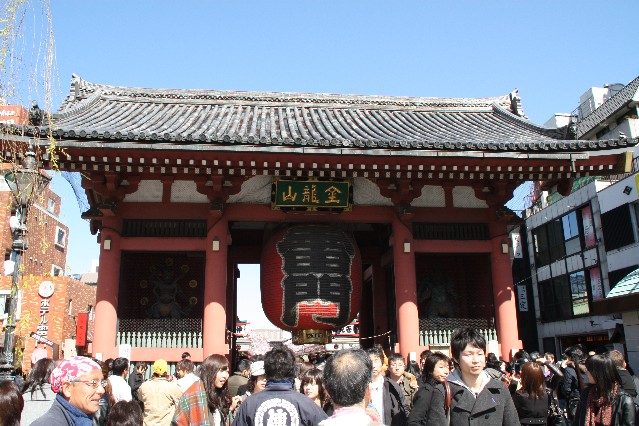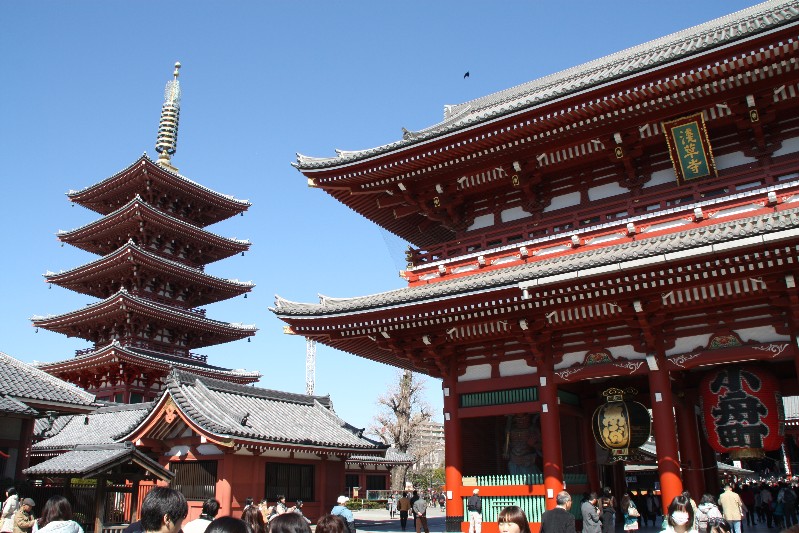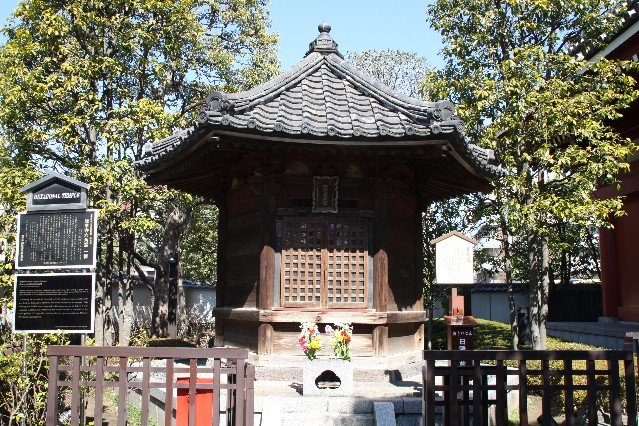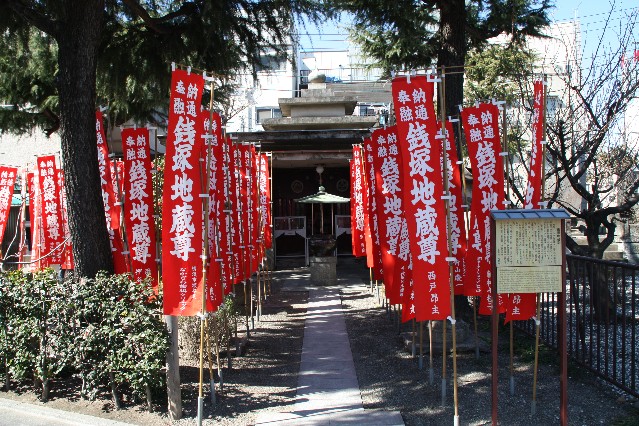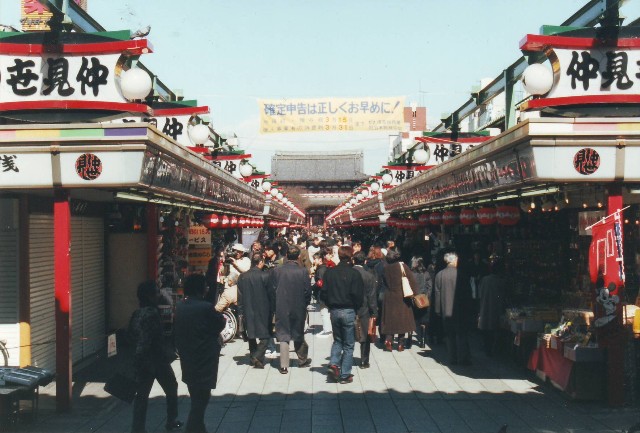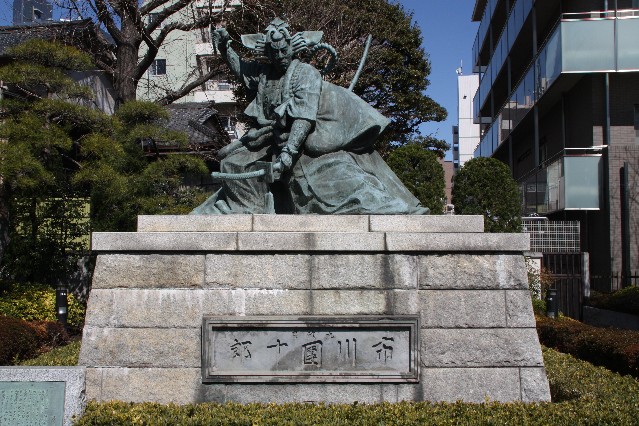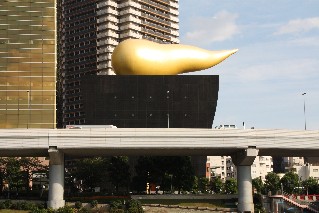Sensoji Temple Tokyo
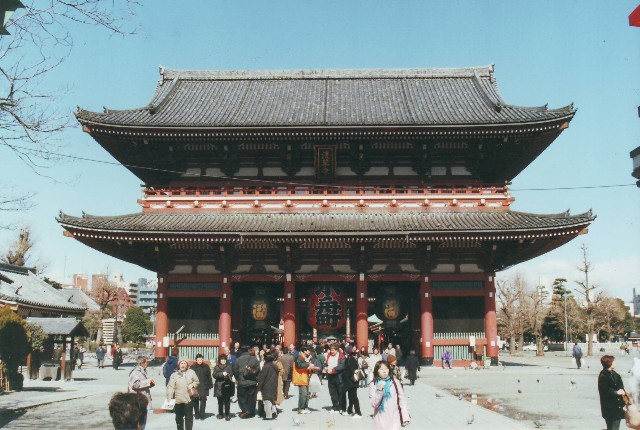
Asakusa is close to the centre of Tokyo and home to a number of impressive temples including the largest Buddhist Temple Sensoji.
Sensōji (浅草寺) Temple is visited by many Japanese and visitors to Tokyo. When you first approach Sensōji Temple you pass through Kaminarimon (雷門) or “Thunder Gate” with it’s giant lantern and the statues of the guardian Gods Fujin (God of Wind) and Raijin (God of Thunder).
As well as the large Sensoji Temple and Thunder Gates there is an impressive pagoda located just to the side of the main temple. Also throughout the grounds are a number of smaller temples and shrines.
Senso-ji Rokkakudo is the oldest shrine found at Sensoji Temple dating back to 1618 in the early Edo period. This shrine is a hexagonal which is rare within Tokyo.
There is an interesting, small shrine called Zeniduka Jizoudou Hall. This is a shrine which houses stone sculptures of ‘Roku-Jizou’ . There was a man called Yamaguchi whose wife dug up a crock filled with ‘Kanei-Tsuhou’ which were the coins that were used in the Edo period. The wife feared that if the family relied on this money and did not work for a living that bad luck would come to her family so she buried the coins again. As a result of the hard work the family prospered and ended up building the shrine above the buried coins.
As you pass through Kaminarimon (Thunder Gate) you then walk along a long walkway which is the Nakamise shopping arcade which leads up to the main temple. This shopping arcade is lined with hundreds of small stalls that sell all types of souvenirs, clothing and food. This is a great place to buy some traditional Japanese souvenirs like sake sets, Japanese tea pots, samurai swords and ornamental chopsticks.
All throughout the grounds of Sensoji Temple are various statues depicting the Buddha, other Buddhist imagery as well as people from Japanese history. There is the impressive Shibaraku statue which is made from copper and depicts the 9th Danjuro Ichikawa (1838 – 1903) a famous Kabuki actor. The statue has him in this trademark pose of ‘Shibaraku’.
Just next to the grounds of the temple is a small amusement park with a number of different rides suitable for children. Hanayashiki Amusement Park is the oldest amusement park in Japan, starting in 1853. Located just behind Sensoki Temple the amusement park now has 20 amusement rides.
During the Second World War Asakusa received heavy bombing from the Americans which resulted in 100,000 deaths here and the surrounding areas.
One of the more unusual festivals that occurs at Sensoji Temple is the annual Kanoki or ‘baby-cry sumo’ contest. Parents bring their babies to Sensoji Temple and sumo wrestlers hold the babies facing each other until they cry. The Japanese parents believe that the sumo wrestlers can make the babies cry out a wish for good health.
Asakusa also is home to 2 other temples/shrines. Asakusa Shinja is a large Shinto shrine and Chingodo Shrine is dedicated to Chingodo, a racoon dog which is guardian against burglars and fire.
From Asakusa you can catch a ferry down the river to the entrance of the harbour and to Odaiba which has a number of tourists attractions including a large ferris wheel, Rainbow Bridge, Venus Fort (a Venice Themed shopping centre), Decks Tokyo Beach and Joypolis – a gaming centre run by Sega.
Asahi Headquarters Building
Directly across the Sumida river from where you get off the ferry at Asakusa is the Asahi Beer Company’s head quarter building. There is nothing special about their headquarters being here except for the massive golden sculpture on the roof the building. The building is in the shape of a beer glass and the golden structure on top of the building is supposed to be a golden flame though may locals and tourists make up their own interpretation including calling it the golden turnip, golden chilli or the golden poo.
Check out the location of Sensoji Temple in Asakusa Tokyo
Popular Tokyo Tourist Attractios
-
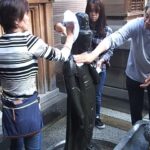 The Healing Temple – Koganji Temple Tokyo
The Healing Temple – Koganji Temple Tokyo
-
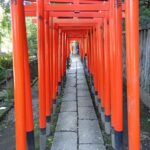 Nezu Shrine Tokyo Japan
Nezu Shrine Tokyo Japan
-
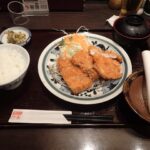 Restaurants close to Hilton Hotel Shinjuku Tokyo
Restaurants close to Hilton Hotel Shinjuku Tokyo
-
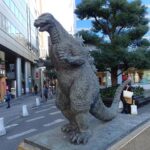 Godzilla Statue in Tokyo
Godzilla Statue in Tokyo
-
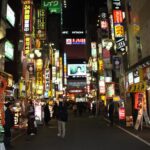 Tourist Highlights of Shinjuku Tokyo
Tourist Highlights of Shinjuku Tokyo
-
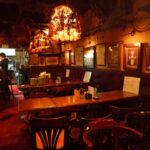 Cool Piano Jazz Bar in Shinjuku Tokyo
Cool Piano Jazz Bar in Shinjuku Tokyo
-
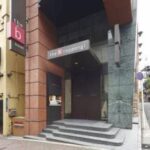 Boutique Hotel – The B Hotel Roppongi Tokyo
Boutique Hotel – The B Hotel Roppongi Tokyo
-
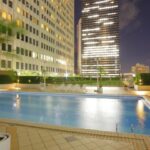 Best Hotels in Shinjuku Tokyo
Best Hotels in Shinjuku Tokyo
-
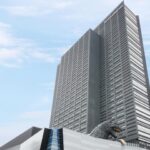 Best Hotels in Kabukicho Shinjuku Tokyo
Best Hotels in Kabukicho Shinjuku Tokyo
-
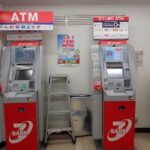 Where to withdraw cash from Tokyo ATM machines
Where to withdraw cash from Tokyo ATM machines
